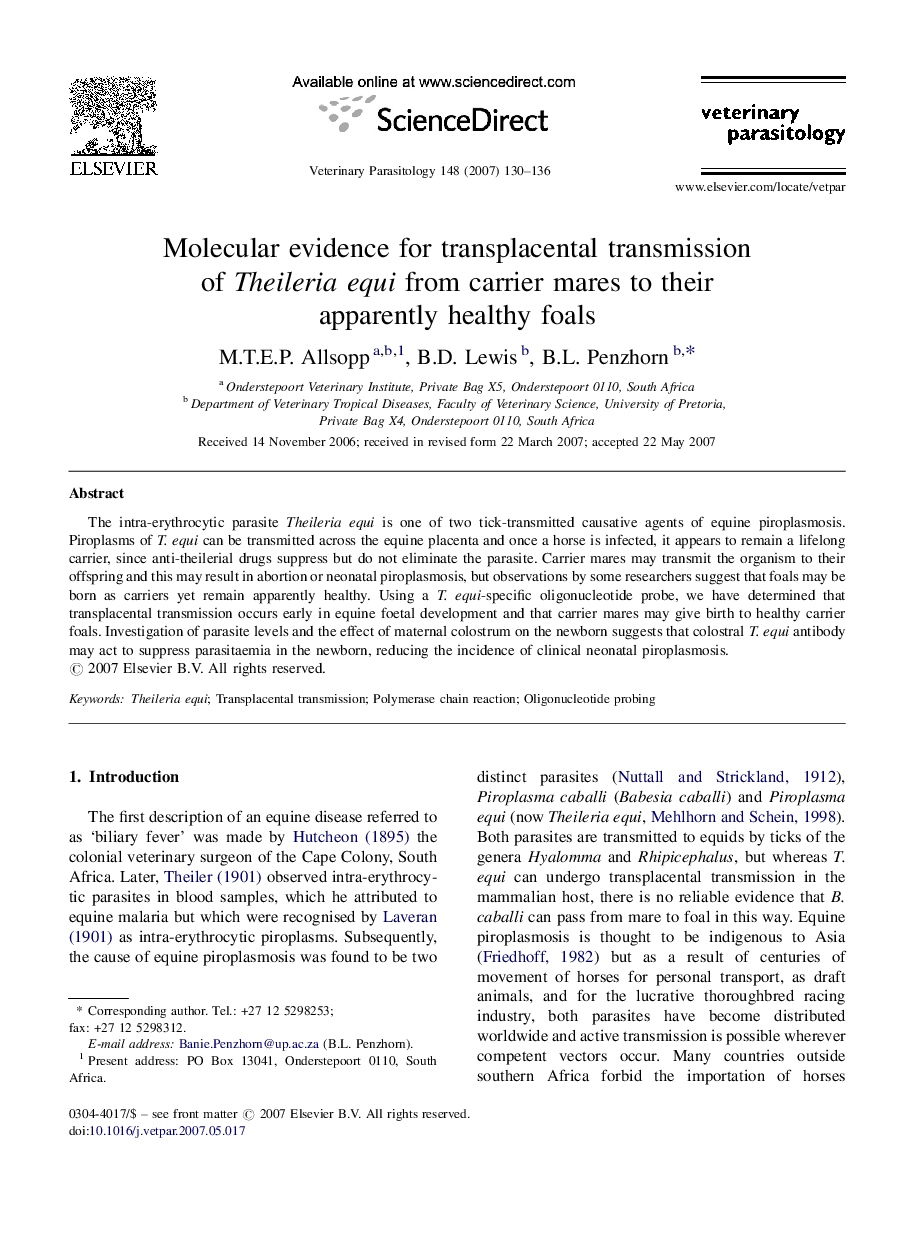| Article ID | Journal | Published Year | Pages | File Type |
|---|---|---|---|---|
| 2472154 | Veterinary Parasitology | 2007 | 7 Pages |
The intra-erythrocytic parasite Theileria equi is one of two tick-transmitted causative agents of equine piroplasmosis. Piroplasms of T. equi can be transmitted across the equine placenta and once a horse is infected, it appears to remain a lifelong carrier, since anti-theilerial drugs suppress but do not eliminate the parasite. Carrier mares may transmit the organism to their offspring and this may result in abortion or neonatal piroplasmosis, but observations by some researchers suggest that foals may be born as carriers yet remain apparently healthy. Using a T. equi-specific oligonucleotide probe, we have determined that transplacental transmission occurs early in equine foetal development and that carrier mares may give birth to healthy carrier foals. Investigation of parasite levels and the effect of maternal colostrum on the newborn suggests that colostral T. equi antibody may act to suppress parasitaemia in the newborn, reducing the incidence of clinical neonatal piroplasmosis.
